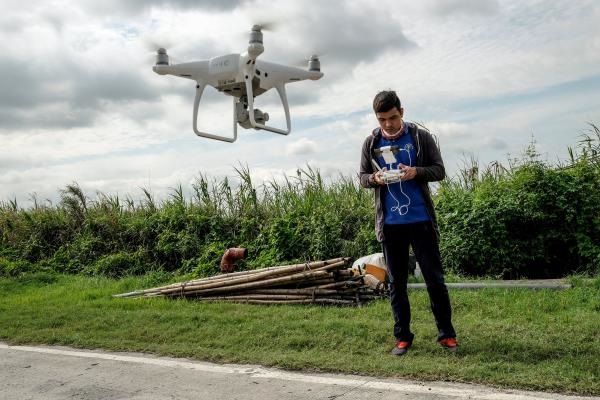
26 February 2021, Rome/Vatican City - The Pontifical Academy for Life, together with the first co-signatories of the Rome Call for Artificial Intelligence (AI) Ethics: Microsoft, IBM, and the Food and Agriculture Organization of the United Nations (FAO), today marked the first anniversary of the document which has been endorsed by Pope Francis and seeks a commitment towards developing AI technologies in ways that are transparent, inclusive, socially beneficial and accountable.
"Progress can make a better world possible if it goes together with the common good". This was reiterated by Archbishop Vincenzo Paglia, President of the Pontifical Academy for Life, recalling that on February 28, 2020, Microsoft, IBM, FAO, the Minister for Technological Innovation of the Italian government, signed the Rome Call for AI Ethics, promoted by the Pontifical Academy for Life.
"After 12 months the 'family' of signatories has grown and we are working to make the document more and more known, in view of further accessions by strategic actors for an ethical approach to the themes of Artificial Intelligence," Archbishop Paglia noted. "A channel of dialogue with monotheistic religions is open, in order to converge on a common vision of technology at the service of all humanity. The depth and acceleration of the transformations in the digital age raise global and constantly evolving issues. A year after the Call, the Pontifical Academy for Life is increasingly convinced and determined on the importance of placing itself at the service of each person in his/her entirety and of all people, without discrimination or exclusion. The complexity of the technological world requires a more articulated ethical reflection, to make our commitment truly incisive. We need a new alliance between research, science and ethics, because we stand at a crucial crossroads, in order to build a world where technology is actually used for the development of peoples. That is a request coming from faith and reason. Without equitable and widespread development there will be no justice, there will be no peace, there will be no universal brotherhood."
The Rome Call for AI Ethics is a document created to support an ethical approach to Artificial Intelligence and promote a sense of shared responsibility among organizations, governments and institutions with the aim of guaranteeing a future in which digital innovation and technological progress are at the service of human ingenuity and creativity.
"By 2050, the world will have to feed about 10 billion people. This will only be possible with transformed agri-food systems that are inclusive, resilient and sustainable. Artificial Intelligence in Food and Agriculture plays a key role in this transformation and in achieving Food for All," said FAO Director-General QU Dongyu. "At FAO, we use ethical AI in our work for Better Production, Better Nutrition, a Better Environment and a Better Life. All people have the right to benefit from an ethical AI and reap the digital dividend. FAO has been fully committed with the Rome Call for AI ethics," he added.
"A year ago, we joined Archbishop Vincenzo Paglia and the Pontifical Academy for Life to honor the six fundamental principles in the Rome Call for AI and Ethics and ensure that technology continues to serve humanity," said Microsoft President Brad Smith. "As we recover from the COVID-19 pandemic, the Rome Call will be even more important as we think more broadly and ethically about the future of technology. The Rome Call helps put us on this path to promote a thoughtful, respectful and inclusive conversation about the intersection of artificial intelligence technology and society."
"At IBM we believe that AI has the ability to transform and improve our lives and our society in many important ways," said Dario Gil, Senior Vice President and Director of IBM Research. "For all of us to benefit from AI, it requires a commitment to actively develop, deploy, and use it responsibly in order to prevent adverse outcomes. This is why IBM was so proud to join the Pontifical Academy for Life as one of the initial signers of the Rome Call for an AI Ethics, supporting an ethical approach to Artificial Intelligence. Our work in support of AI Ethics permeates our entire company, which includes a centralized governance framework, risk assessment protocols, trustworthy AI development methodologies, education and training initiatives, research innovations, and open source toolkits to help others bolster their AI ethics efforts," Gil added.
The Rome Call for AI Ethics stresses that "AI systems must be conceived, designed and implemented to serve and protect human beings and the environment in which they live," a concept that many participants reiterated one year ago.